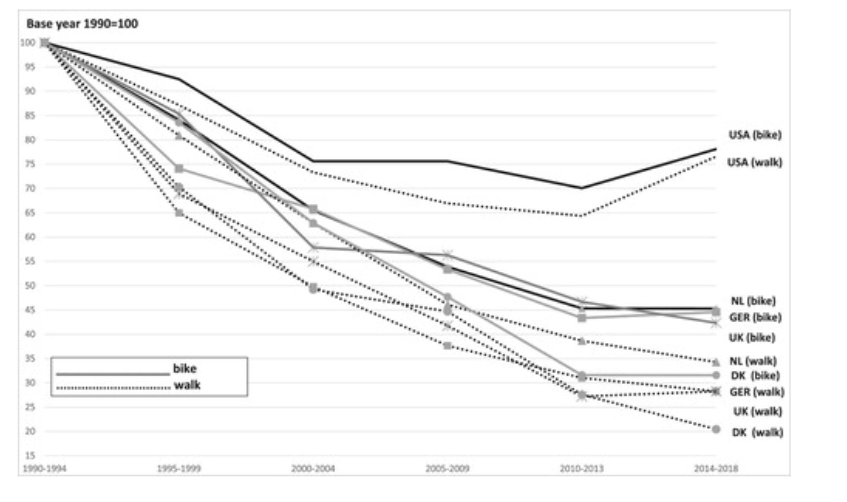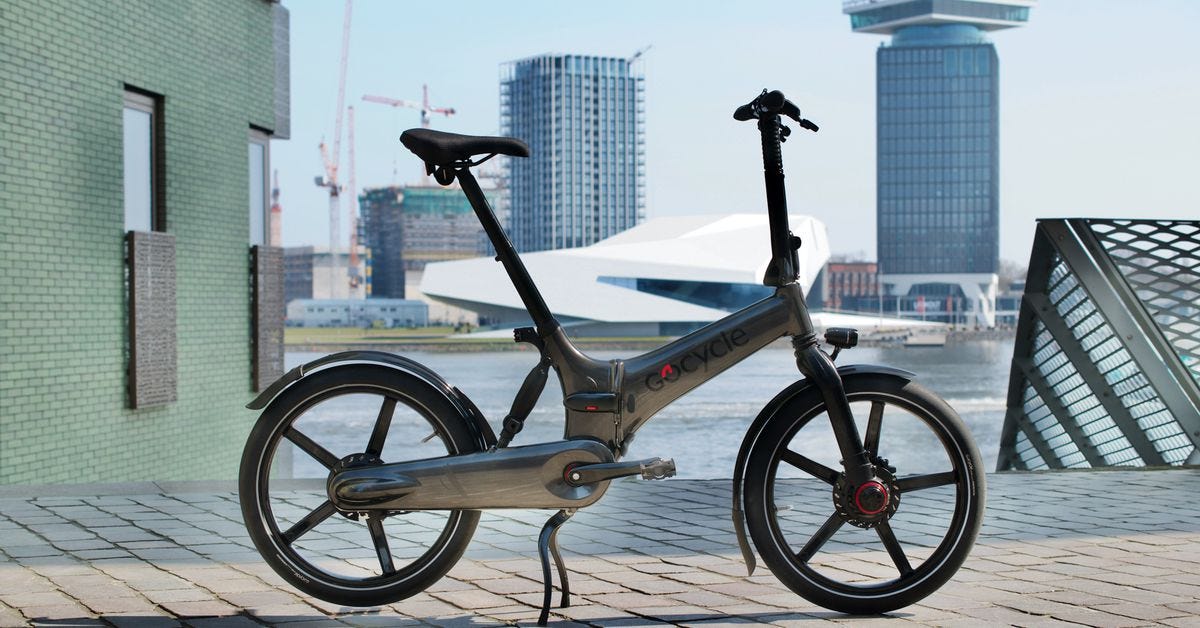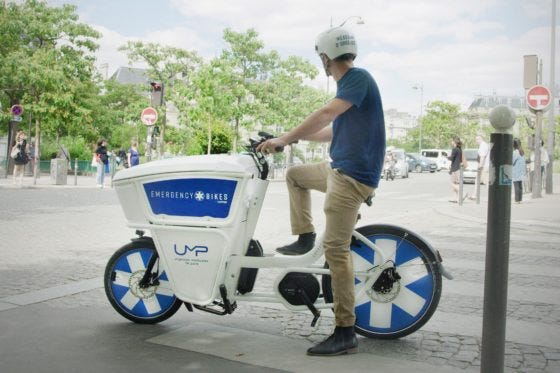Lime wants a cut of every short trip
Plus, Uber isn’t over micromobility, the world bike capital bans scooters, and the EU is revisiting its e-bike regulations.
Hello and welcome to the Micromobility Newsletter, a weekly missive about mobility, mostly mobility in cities by small electric vehicles like bikes and scooters. The reason you’re reading this email is that you signed up on our website or came to one of our webinars or events.
If you’re not a subscriber and you want to keep getting the latest news and analysis from inside the micromobility movement delivered straight to your inbox every Tuesday, sign up here for free. If you’d like to unsubscribe, just click that link.
Thank you for reading.
Coming attractions

Reminder: The first-ever Curbivore virtual conference is launching next week, featuring insightful conversations about the future of restaurants, cities, retail, mobility, and delivery with CEOs from ChowNow, Tortoise, Zoomo, and more. Be sure to register here for free, then join us on Oct. 20-21.
What you need to know this week
Lime is reimagining itself as the MaaS platform for micromobility. This winter, the Lime app will start allowing users in select cities to find and rent vehicles from third-party operators, beginning with pedal-free e-bikes from Wheels. Lime already has the largest reach of any shared micromobility provider in the world. By aggregating more types of LEVs into its platform, the company hopes to become a “one-stop-shop for anyone looking to take a car-free trip under five miles,” according to CEO Wayne Ting.
Lime’s commission on those third-party rentals must be pretty good, because Ting also says the company will reach profitability in 2021. This remarkable rebound follows a “near-death experience” in spring, when the COVID-19 outbreak sent Lime’s revenue plummeting 95%.
The EU Commission is revisiting its classifications for e-bikes. Under the current system, many e-bikes with assistance of over 15 mph are considered mopeds.
A Brooklyn startup has invented a $400 portable clip-on battery that can turn any regular bike into an electric bike in an instant.

Despite offloading its scooter and bike division earlier this year, Uber still views micromobility as “really important” to its future, according to one exec.
Europe has invested $1 billion on new bike lanes during lockdown. It’s not highway money, but it’s a start.
Niu’s stock price jumped 12% to an all-time high this week after the e-moped manufacturer announced it sold a quarter million units in Q3, a 68% increase year-over-year.
Street safety trends in the US are diverging from the rest of the developed world. Between 2010 and 2018, fatality rates per capita rose 17% for pedestrians and 33% for cyclists in America, while declining across Western Europe. Statistics show Black and Hispanic cyclists are overrepresented in US fatalities.

Tier is looking to deploy 400 battery-swap kiosks at stores in London, pitching local partners on a symbiotic relationship. “Over a six-week trial at a shop in Finland, an average of 16 riders a day popped into to swap batteries, spending an average of £2.85 in store at the same time (about the price of a coffee).”
With less traffic on the roads, cities are experiencing a surge in bike trips led by women cyclists. “In New York, there were an estimated 80 percent more cycling trips in July compared with the same month last year, with biking by women rising by 147 percent.”
Forbes reviews Gogoro’s featherweight Eeyo e-bike: “These bikes aren’t the product of some nascent crowd-funded silicon valley startup, and it shows in the performance of the finished product.”
Meanwhile, Wired dubs the Gocycle GXI “the folding ebike to beat.”

With orders booming, e-bike companies are struggling to keep up with a surge in service requests and maintenance issues from new customers. One interesting answer to the backlog would be if more DTC brands moved into brick-and-mortar.
Copenhagen is banning shared scooters from the city center, starting on Jan. 1. Our motto is that more car alternatives are better than less, but that said, if there’s any city that doesn’t need scooters to get people to stop driving everywhere, it’s bike-crazy Copenhagen.
New detection tech developed by Cal Poly Digital Transformation Hub can power off a scooter when it is ridden on a sidewalk.
In Paris, e-bike retailer Ecox and consulting agency Wunderman Thompson have partnered to create a special emergency e-cargo bike to allow doctors to zip through traffic.

At last, London aims to start an e-scooter pilot next spring with two or three operators.
Phone usage while driving is up 38% since lockdown began.
Bike shops across America are completely sold out amid the pandemic in large part because the country imports nearly all its bikes from China. To prevent future shortages, should the US adopt an industrial policy for bikes?
The Cambrian explosion continues. The number of scooter models available on the retail market in Germany has gone up almost 50% since February.
The brilliant Michele Kyrouz is out with a new book about how cities can create new mobility systems and break their dependence on cars. Highly recommend checking out.
Pod people
“I’m not saying Tesla is a bad business. But the presumption that Tesla will dominate cars the way Apple dominated phones? I don’t see that happening.”
On a new edition of the podcast, Horace Dediu talks to Oliver Bruce about why small cars—not electric cars—are a disruptive strategy.
Jobs to be done
Welcome to our jobs board, where every week we post new career openings in hopes of connecting our readers with professional opportunities in the burgeoning world of new mobility. Find out who’s hiring below and sign up for the newsletter to view fresh listings every week.
Business Owner at Wunder Vehicles (Hamburg)
Electronics Engineering Project Manager at Cowboy (Brussels)
Senior INS / GNSS Algorithms Engineer at Navmatic (San Jose or remote)
Electric Scooter Genius at Electric Scooter Guide (Albany, CA)
Regional Market Manager at Lime (Cologne)
Product Design Engineer at Dance (Berlin)
Mobility Fullstack Engineer at Trov (North America, remote)
Senior Product Manager at Ubiq (Vienna)
Head of Marketing at Electric Feel (Barcelona)
Fullstack Mobile Applications Engineer at Unagi (US or Canada, remote)
Head of Revenue at Invers (Cologne)
Backend Developer at Bond (Brussels)
Various roles at PBSC


